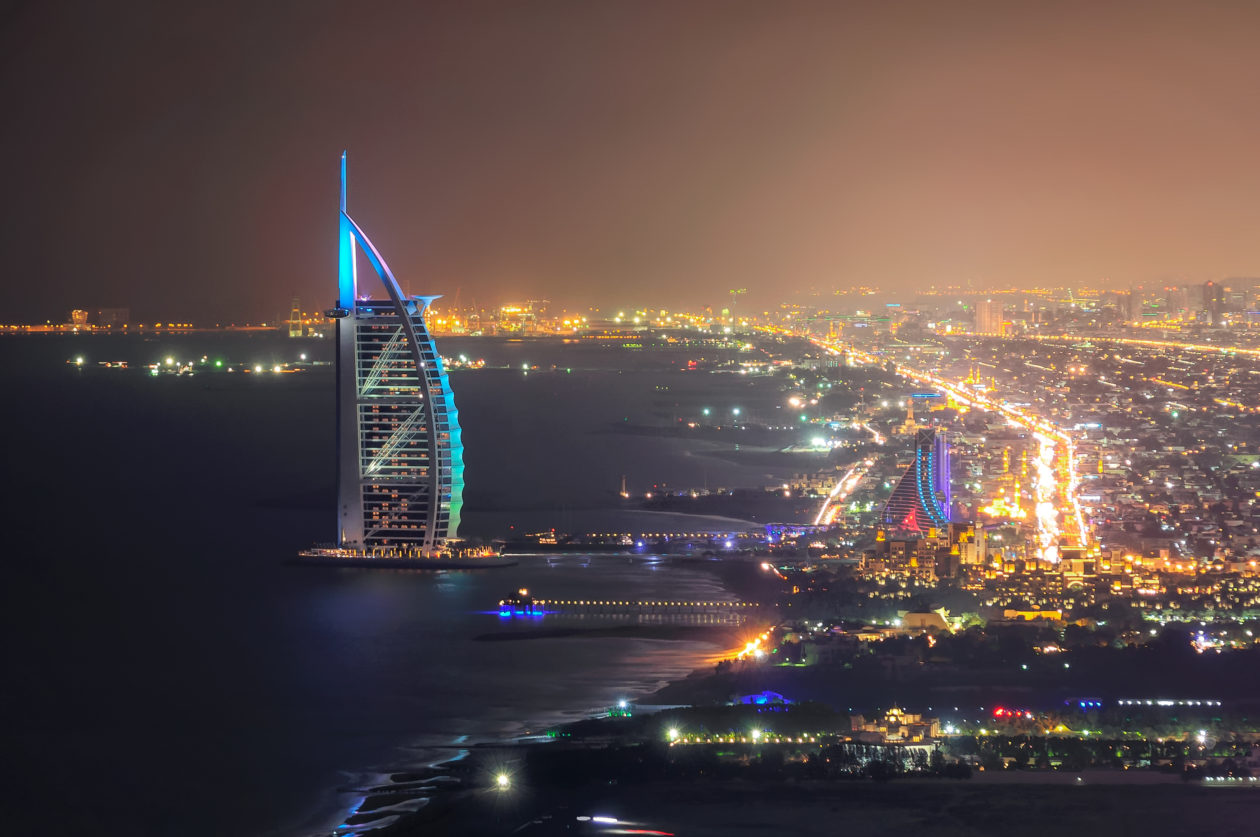According to RBI Remittance Survey 2021, India’s 30% expat population in the United Arab Emirates (UAE) account for 18% of the US$110 billion global remittance inflow to India. The financial ties between the two countries stretch beyond remittances, now encompassing the realm of Web3, an evolving iteration of the internet based on blockchain technology.
Bilateral trade between India and the UAE surged to US$85 billion last year, and both countries are exploring interoperability between their central bank digital currency (CBDCs) projects.
Dubai, the most populous city in the UAE, saw over 90,000 Indian companies registered with the Dubai Chambers, while the city’s largest tech event, GITEX, saw more than 300 Indian startups, a number that had tripled from last year.
India topped Chainalysis Global Crypto Adoption Index in 2023, and is now the world’s second-largest crypto market by raw transaction volume. But the local industry, that has been drying up due to the government’s strict tax rules, is inspiring local players to seek the oasis of Dubai’s burgeoning crypto ecosystem.
“A lot of Web3 founders prefer Dubai or Singapore as their hub, because they have clarity and certainty around regulations and greater community support. When you’re setting up a business, investors are more comfortable investing in a jurisdiction where there are no last minute surprises. I am starting to see this trend on the ground and it must be reversed,” Sumit Gupta, the chief executive of Indian crypto exchange CoinDCX, told Forkast.
“We have seen a decline of more than 90% in volumes. That’s a huge, steep decline. And what you have seen is that India continues to be number one when it comes to grassroot crypto adoption, but a lot of that activity is happening on alternative channels because of the high tax rates,” said Gupta.
Finance Minister Nirmala Sitharaman, during last year’s budget announcement, introduced 30% tax plus applicable surcharge and 4% cess on profits made from crypto trading.
This year brought more bad news for Indian crypto traders with the introduction of a 1% tax deducted at source or TDS on crypto transactions above Rs 10,000. According to an amendment to the Income Tax Act, failure to pay TDS may result in a penalty equal to the unpaid amount, a 15% interest on late payments and in certain cases even a jail sentence.
According to Gupta, the “regulatory arbitrage” may not be around for much longer. The Indian Finance Ministry did not respond to a request for an interview or provide commentary for this article.
“There is a regulatory arbitrage which will not sustain for long, and has to go away. The government is aware of that. It’s a matter of when they decide to remove that arbitrage. Serving Indian customers from offshore is not scalable, not reliable and not compliant,” said Gupta.
But low taxes, ease of setting up businesses, a dedicated regulator and access to international markets such as Asia and Europe are driving the wave of Indian crypto firms towards Dubai.
Crypto projects can meet the rest of the world through Dubai. If I look at new businesses coming in, predominantly the UK, India, China, US, Russia, make up the top 5%. Dubai is basically a hub, ” said Belal Jassoma, head of business development at the Dubai Multi Commodities Centre (DMCC), at the Future Blockchain Summit.
DMCC houses over 23,000 companies, out of which 3,700 are from India. Last year it opened a representative office in Mumbai to further grow its members and provide customized licenses to Indian businesses.
Its dedicated Crypto Centre has 550 Web3 companies out of which 50 are Indian. The DMCC Crypto Centre welcomed the Solana Foundation as its ecosystem partner at the Future Blockchain Summit and houses a long list of Web3 companies including crypto exchange Bybit, digital asset market maker DWF Labs, Web3 incubator TDeFi, and venture capital fund Brinc.
The city’s dedicated regulator for digital assets, Virtual Assets Regulatory Authority (VARA), oversees cryptocurrencies and related activities in all free zones in Dubai except the Dubai International Financial Centre (DIFC). Abu Dhabi, the capital of the UAE, also has a similar scope of work through the Abu Dhabi Global Market (ADGM).
“VARA has crafted its regulations to be adaptable to market demands and be agile in addressing global market risks, aiming to attract entrepreneurs to solidify Dubai’s position as a central hub for Web3,” said Sunita Khatri, Commercial Director, Dubai World Trade Centre (DWTC).
Unicorn Indian exchange explores MENA expansion
The UAE is one of the countries that make up the Middle East & North Africa (MENA) region. According to Chainalysis, the region had the sixth largest crypto economy with an estimated US$400 billion dollars or 7.2% of global transaction volume recorded between July 2022 and June 2023.
“MENA as a region is quite an interesting opportunity for CoinDCX to tap into because it’s a fast growing market, the adoption numbers there are pretty impressive and Web3 can unlock many opportunities in the India-UAE corridor. New use cases around remittances and payments are emerging from that region,” said Gupta.
BitOasis, a crypto trading platform based in the UAE had its license suspended for “not meeting mandated conditions, required to be satisfied within 30-60 day timeframes,” according to VARA in a notice. The exchange that secured funding from CoinDCX, said it’s working with the regulator to fulfill the remaining conditions.
“BitOasis was a strategic investment approach by CoinDCX to create an impact in international markets, maybe not directly, but by partnering with the right companies who are aligned with our mission and values.
It’s not just India
India, the world’s most populous country and the world’s sixth largest economy by nominal gross domestic product, is not alone tightening restrictions on crypto businesses.
In Australia, progress on crypto regulations has been slow. The country is aiming to release a draft legislation in 2024 for licensing and custody of crypto asset providers and Australian crypto exchanges may not get licensed until 2025.
Top banks in Australia including the Commonwealth Bank (CBA) applied restrictions on crypto exchanges citing “scams” as the reason. As a result of debanking, Binance Australia had to halt customer deposits and withdrawals.
“We’ve always been an Australian only exchange, but with the difficulties and challenges around licensing and the time it’s taken for that to come through to fruition, we’re now actively looking to expand overseas,” said Caroline Bowler, CEO, BTC Markets, an Australian crypto exchange.
“The benefit for Dubai is that they’ve gone for something very tailored, very specific. And I think they’ve kind of the way that they framed it, it looks as though they’re looking to build out this sector for the longer term.”
Binance recently earned an operational license in Dubai, opening up services of the world’s largest cryptocurrency exchange to customers in Dubai. Crypto exchanges Gemini and Bybit are also seeking a license in the United Arab Emirates.
U.S.-based Coinbase’s Brian Armstrong has had discussions with UAE regulators over plans of setting up a second headquarters in the country to access markets in the Middle East, Africa and Asia. Coinbase suspended its operations in India three days after its launch in April 2022 due to issues with the local digital payment service. Informal pressure from India’s central bank was cited as a contributing factor. The exchange remains inactive in India, but its wallet services and tech hub remain active.
Ripple’s XRP recently received approval from the Dubai Financial Services Authority (DFSA) for use within the Dubai International Financial Centre (DIFC). Licensed virtual asset firms in the DIFC can now offer XRP as part of their services.
Brad Garlinghouse, CEO of Ripple, said in a press release: “Dubai continues to demonstrate global leadership when it comes to the regulation of virtual assets and nurturing innovation…Ripple will continue to double down on its presence in Dubai and we look forward to continuing to work closely with regulators to realize crypto’s full potential.”
Around 20% of Ripple’s customers are based in MENA.
“The U.S. regulatory climate has been relatively hostile or unclear for digital asset businesses, so exchanges such as Coinbase and other major players have announced that they’re going to be applying for licenses here,” said Jimmy NGuyen, CEO, New Win Global, a Web3 venture advisory firm.
“And the reason is because Dubai has been progressive at creating regulatory clarity with the launch of the Virtual Assets Regulatory Authority, putting out guidelines and policies about licenses to get. So all around the world, exchanges and other digital asset service providers are setting up second headquarters.”
UK-based crypto lender, Nexo is expanding its UAE operations, aiming for 30% of its global footprint. The move follows sanctions imposed by the Securities and Exchange Commission (SEC) on a crypto lending product in the US, where Nexo paid US$45 million to regulators in settlements.
The U.K. government is gearing up to regulate the crypto industry by 2024 , bringing it in line with the rules governing traditional banks and financial services.






